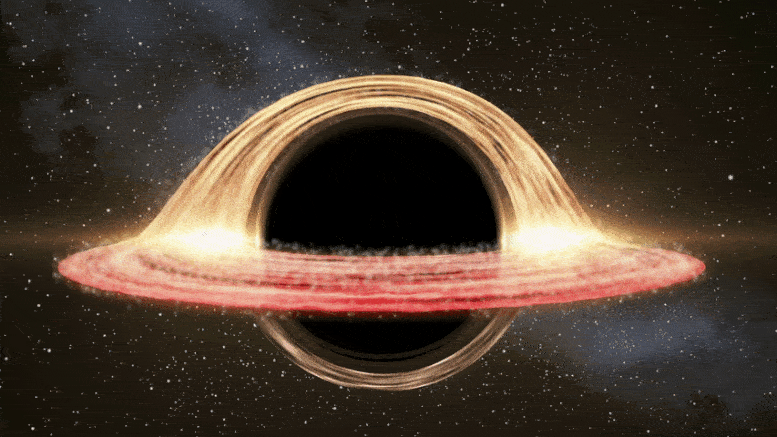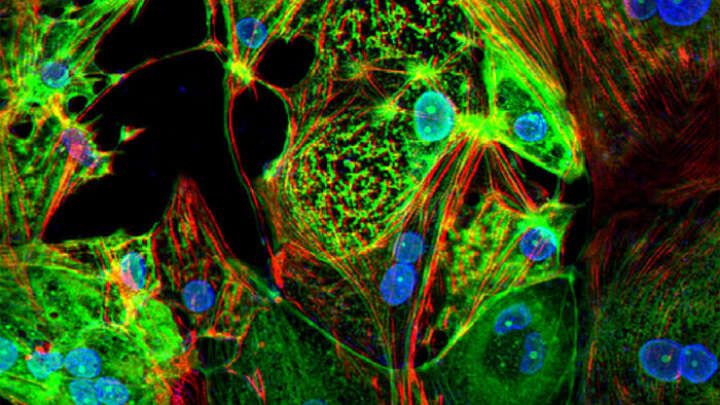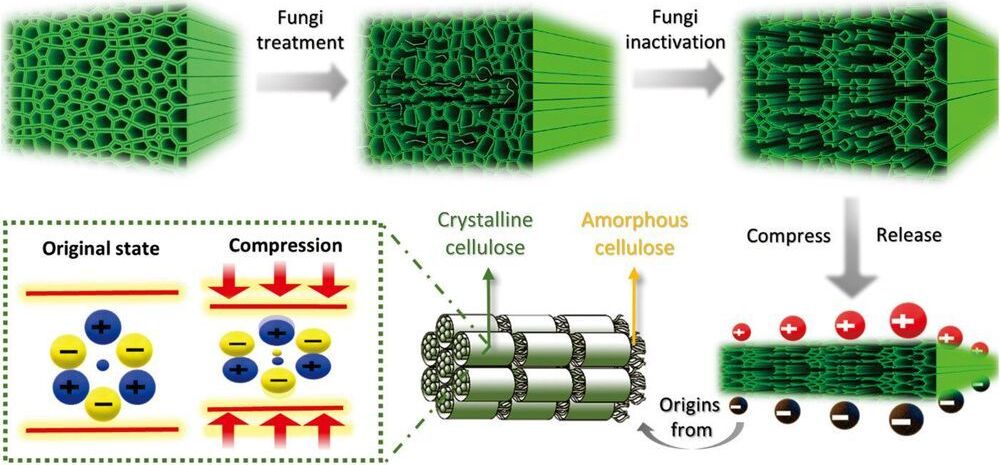New Browser Side-Channel Attack Allows Sites Track Visitors with JavaScript Disabled.



Most new achievements in artificial intelligence (AI) require very large neural networks. They consist of hundreds of millions of neurons arranged in several hundred layers, i.e. they have very ‘deep’ network structures. These large, deep neural networks consume a lot of energy in the computer. Those neural networks that are used in image classification (e.g. face and object recognition) are particularly energy-intensive, since they have to send very many numerical values from one neuron layer to the next with great accuracy in each time cycle.
Computer scientist Wolfgang Maass, together with his Ph.D. student Christoph Stöckl, has now found a design method for artificial neural networks that paves the way for energy-efficient high-performance AI hardware (e.g. chips for driver assistance systems, smartphones and other mobile devices). The two researchers from the Institute of Theoretical Computer Science at Graz University of Technology (TU Graz) have optimized artificial neuronal networks in computer simulations for image classification in such a way that the neurons —similar to neurons in the brain—only need to send out signals relatively rarely and those that they do are very simple. The proven classification accuracy of images with this design is nevertheless very close to the current state of the art of current image classification tools.

What is the origin of black holes and how is that question connected with another mystery, the nature of dark matter? Dark matter comprises the majority of matter in the Universe, but its nature remains unknown.
Multiple gravitational wave detections of merging black holes have been identified within the last few years by the Laser Interferometer Gravitational-Wave Observatory (LIGO), commemorated with the 2017 physics Nobel Prize to Kip Thorne, Barry Barish, and Rainer Weiss. A definitive confirmation of the existence of black holes was celebrated with the 2020 physics Nobel Prize awarded to Andrea Ghez, Reinhard Genzel and Roger Penrose. Understanding the origin of black holes has thus emerged as a central issue in physics.
Surprisingly, LIGO has recently observed a 2.6 solar-mass black hole candidate (event GW190814, reported in Astrophysical Journal Letters 896 (2020) 2, L44). Assuming this is a black hole, and not an unusually massive neutron star, where does it come from?

I didn’t get my 2nd Moderna Vaccine because how sick others became after theirs — nausea, fatigue, headaches for days, lymph nodes the size of a rock that fits in your hand, increased heart rate… Recently a Utah woman died 4 days after her 2nd vaccine-her heart, liver and kidneys failed. Less then a yr ago I read several studies on hospitalized COVID patients — how their kidneys and liver were failing. I read a recent study on how post COVID individuals are now having heart issues. Another study shows how COVID attacks the heart and why such individuals are now having heart issues. In December 2020, 13 individuals died after getting vaccinated (probably more since then). There is a real connection between COVID and organ failure!!!! I wish I kept links of all the information I read. Be happy to find them again. We don’t even know the long term affects of the vaccine — are the vaccinated going to experience long term health issues as well? Take your chances with a vaccine, or not.
A Utah woman in her 30s died four days after receiving the coronavirus vaccine.
Kassidi Kurill, 39, was healthy and happy and “had more energy” than others, according to a KUTV report. Then, four days after she received her second dose of the coronavirus vaccine, she suddenly died.
“She came in early and said her heart was racing and she felt like she [needed] to get to the emergency room,” her family said. Her father, Alfred Hawley, said he woke up to her asking for help.

Many post COVID victims have heart issues. This is why:
A new study has discovered how the SARS-CoV-2 virus attacks and damages the heart, answering a long-standing question about mysterious heart conditions following COVID-19 infection. The results could have large implications on how to effectively treat severe infections and develop new therapies for preventing long-term damage.
Throughout the pandemic, people with severe COVID-19 infection have often displayed symptoms of heart distress. Those with underlying heart conditions are at a greater risk of severe illness if they catch it, and reports of abnormal heart rhythms (arrhythmia) in previously healthy patients with acute COVID-19 have been common.
However, exactly why this happens has eluded scientists until now. Researchers have been unsure whether the heart symptoms are a result of severe inflammation as the body reacts to the infection, or whether the virus particles themselves invade and attack heart cells.


University of Chicago researchers hunt for proposed particles that could explain quirks of the universe.
A team of researchers at the University of Chicago recently embarked on the search of a lifetime—or rather, a search for the lifetime of long-lived supersymmetric particles.
Supersymmetry is a proposed theory to expand the Standard Model of particle physics. Akin to the periodic table of elements, the Standard Model is the best description we have for subatomic particles in nature and the forces acting on them.

The recent synthesis of one-dimensional van der Waals heterostructures, a type of heterostructure made by layering two-dimensional materials that are one atom thick, may lead to new, miniaturized electronics that are currently not possible, according to a team of Penn State and University of Tokyo researchers.
Engineers commonly produce heterostructures to achieve new device properties that are not available in a single material. A van der Waals heterostructure is one made of 2D materials that are stacked directly on top of each other like Lego-blocks or a sandwich. The van der Waals force, which is an attractive force between uncharged molecules or atoms, holds the materials together.
According to Slava V. Rotkin, Penn State Frontier Professor of Engineering Science and Mechanics, the one-dimensional van der Waals heterostructure produced by the researchers is different from the van der Waals heterostructures engineers have produced thus far.

A multi-institutional team of researchers has found that it is possible to use a type of fungus to soften wood to the point that it could be used to generate electricity. In their paper published in the journal Science Advances, the group describes their process and how they tested it.
As the world works its way toward cleaner energy-producing systems, scientists seek novel approaches to producing electricity. One possibility is the use of piezoelectric devices that generate electricity by harnessing movement such as footsteps. In this new effort, the researchers have noted that much energy is wasted when people walk around. And while some have attempted to harness some of that energy with devices designed for shoes or legs, the researchers with this new effort wondered if it might be possible to add piezoelectrics to the floor to make use of that energy.
In studying the kinds of wood that are used to make floors, particularly in homes, the researchers noted that they do not have much give—a necessary component of an energy-harvesting system. To solve that problem, they found that applying a type of white rot fungus to pieces of balsa wood for a few weeks sped up the decaying process in a useful way. It made the wood spongier, which translated to give. When stepping on the wood, the researchers could feel it depress. They also found that after the wood returned to its former shape when pressure was removed.

What do you do after solving the answer to life, the universe, and everything? If you’re mathematicians Drew Sutherland and Andy Booker, you go for the harder problem.
In 2019, Booker, at the University of Bristol, and Sutherland, principal research scientist at MIT, were the first to find the answer to 42. The number has pop culture significance as the fictional answer to “the ultimate question of life, the universe, and everything,” as Douglas Adams famously penned in his novel “The Hitchhiker’s Guide to the Galaxy.” The question that begets 42, at least in the novel, is frustratingly, hilariously unknown.
In mathematics, entirely by coincidence, there exists a polynomial equation for which the answer, 42, had similarly eluded mathematicians for decades. The equation x3+y3+z3=k is known as the sum of cubes problem. While seemingly straightforward, the equation becomes exponentially difficult to solve when framed as a “Diophantine equation”—a problem that stipulates that, for any value of k, the values for x, y, and z must each be whole numbers.